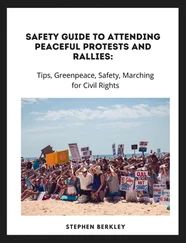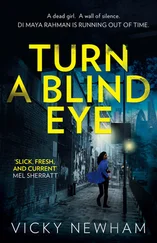Catharine Dworkin - Pornography and Civil Rights - A New Day for Women's Equality
Здесь есть возможность читать онлайн «Catharine Dworkin - Pornography and Civil Rights - A New Day for Women's Equality» весь текст электронной книги совершенно бесплатно (целиком полную версию без сокращений). В некоторых случаях можно слушать аудио, скачать через торрент в формате fb2 и присутствует краткое содержание. Жанр: Старинная литература, на английском языке. Описание произведения, (предисловие) а так же отзывы посетителей доступны на портале библиотеки ЛибКат.
- Название:Pornography and Civil Rights: A New Day for Women's Equality
- Автор:
- Жанр:
- Год:неизвестен
- ISBN:нет данных
- Рейтинг книги:5 / 5. Голосов: 1
-
Избранное:Добавить в избранное
- Отзывы:
-
Ваша оценка:
- 100
- 1
- 2
- 3
- 4
- 5
Pornography and Civil Rights: A New Day for Women's Equality: краткое содержание, описание и аннотация
Предлагаем к чтению аннотацию, описание, краткое содержание или предисловие (зависит от того, что написал сам автор книги «Pornography and Civil Rights: A New Day for Women's Equality»). Если вы не нашли необходимую информацию о книге — напишите в комментариях, мы постараемся отыскать её.
Pornography and Civil Rights: A New Day for Women's Equality — читать онлайн бесплатно полную книгу (весь текст) целиком
Ниже представлен текст книги, разбитый по страницам. Система сохранения места последней прочитанной страницы, позволяет с удобством читать онлайн бесплатно книгу «Pornography and Civil Rights: A New Day for Women's Equality», без необходимости каждый раз заново искать на чём Вы остановились. Поставьте закладку, и сможете в любой момент перейти на страницу, на которой закончили чтение.
Интервал:
Закладка:
equal access to public schooling and public accommodations.
The effort to stop racial discrimination in jobs, hiring practices,
and housing has provided many stigmatized groups legal redress.
Generally, discrimination on the basis of race, sex, religion, color,
national origin, marital status, disability, or, in some cities and
states, sexual or affectional preference, is banned. This broadening of civil-rights protection to many stigmatized groups was the result of political activism, legislative initiatives, and many, many
lawsuits. It was not simply decreed one bright day because it was
right and bigots had recognized the error of their bad ways.
It is especially important to understand that Blacks includes
Black women and that women includes Black women. When
Black people as a whole or women as a whole are discriminated against or hurt, Black women are denied rights. (For instance, when Blacks were given the vote, but women were
excluded, Black women could not vote. )
Women have benefited greatly from civil-rights legislation
and litigation when discrimination has taken the form of exclusion because of sex, especially in employment. When the pat erns of sex discrimination resemble those of race discrimination, especially as they developed under segregation, civil-rights law offers remedies. But when injuries on the basis of
sex are distinct and different—as, for instance, in systematic
sexual abuse—there are no effective civil-rights remedies in
law even though basic rights of citizenship and personhood
are being denied or violated.
The Meaning of Civil Rights
1


The legal history of women’s rights in the United States is
appalling.
Put in the simplest terms: women were the chattel property
of men under law until the early part of the twentieth century.
Married women could not own property because they were
property. A woman’s body, her children, and the clothes on
her back belonged to her husband. When the husband died,
another male, not the mother, became the legal guardian of
the children. The body of a married woman belonged to her
husband just as a slave’s body belonged to the white master.
A single woman was under the legally formidable authority of
her father or other male relatives. Mar ied women were what
nineteenth-century feminists called “civil y dead. ” Single
women sometimes paid taxes. No women had rights of citizenship. Women did not have a constitutionally protected right to vote until 1920.
The Fourteenth Amendment to the U. S. Constitution was
ratified in 1868. The Fourteenth Amendment is unique in the
Constitution. It is an equality-based amendment; it says that
equality under the law is a right. The Fourteenth and the Fifteenth Amendments gave Black men the vote. The Fourteenth Amendment guaranteed citizens equal protection under the
law. The Fourteenth Amendment intentionally excluded
women. * Only in 1971 did the Supreme Court hold that
women too were entitled to the equal protection under the
law promised by the Fourteenth Amendment.
The banning of discrimination on the basis of sex in the
Civil Rights Act of 1964 was a partial and mean af air. Trying
to defeat the whole Civil Rights Act, racist Southern Congressmen proposed to add sex on a par with race to Title VII, the
* Section 2 of the Fourteenth Amendment indudes the fol owing: “But when the
right to vote at any election for the choice of electors... is denied to any of the male inhabitants of such State, being twenty-one years of age... or in any way abridged
... the basis of representation therein shall be reduced in proportion which the number of such male citizens shall bear to the whole number of male citizens twenty-one years of age in such State. ” (Emphasis added. ) In other words; when states deny any man the right to vote in federal or state elections, the Fourteenth Amendment is violated. The Fourteenth Amendment, by express language, declined to extend this equality right, the right to vote, to any women. The Nineteenth Amendment, which extended the franchise to women, was passed in 1920.
12
Pornography and Civil Rights


part of the bill designed to prohibit race discrimination in hiring practices. (Women were not included in the public-accommodations protections in 1964 or 1968. ) This segregationist
amendment adding sex was passed only because the Civil
Rights Act could not be passed without it.
The segregationist amendment was a serious effort to defeat
the bill. It outraged liberal Congressmen who wanted the
1964 Civil Rights Act to pass. It was intended to be—and was
taken as—a massive and foul insult to Black people and to
those in Congress who favored integration. It was widely regarded as a moral obscenity that demeaned the whole concept of civil rights.
The insult of the amendment was: saying Blacks could be
equal with whites was like saying women could be equal with
men, a transparent absurdity. The insult was: the inequality
between Blacks and whites and especially the incapacities of
Blacks were as natural, as normal, as biologically inevitable,
as divinely ordained, as the inequality between the sexes and
especially the incapacities of women. The insult was: Blacks,
like women, are by nature servile and infantile; trying to elevate Blacks to some other level would be like trying to elevate women (and, by inference, children)—ludicrous, deranged.
On the gut er level, the segregationists had, in effect, gone
from calling those who opposed segregation “niggers” and
“nigger lovers” to calling them all “pussy. ”
The conviction that women could have or should have any
relief from civil inequality played no part in establishing this
first legislative basis for sex discrimination as a violation of
civil rights; and the conviction that women had a right to substantive and honest equality similarly played no role.
Most major advances in sex equality under civil-rights
law—from af irmative action to redress for sexual harassment—have come from litigation, not legislation, though Congress subsequently af irmed a commitment to sex-discrimination law many times, especially in the 1970’s.
Some of the legal rights that feminists regard as fundamental to women’s civil equality have nothing at all to do with civil-rights law or sex discrimination. For instance, the right to
The Meaning of Civil Rights
13


abortion is considered a right of privacy under law, not an
equality right. A man’s right to have and use pornography in
Читать дальшеИнтервал:
Закладка:
Похожие книги на «Pornography and Civil Rights: A New Day for Women's Equality»
Представляем Вашему вниманию похожие книги на «Pornography and Civil Rights: A New Day for Women's Equality» списком для выбора. Мы отобрали схожую по названию и смыслу литературу в надежде предоставить читателям больше вариантов отыскать новые, интересные, ещё непрочитанные произведения.
Обсуждение, отзывы о книге «Pornography and Civil Rights: A New Day for Women's Equality» и просто собственные мнения читателей. Оставьте ваши комментарии, напишите, что Вы думаете о произведении, его смысле или главных героях. Укажите что конкретно понравилось, а что нет, и почему Вы так считаете.












